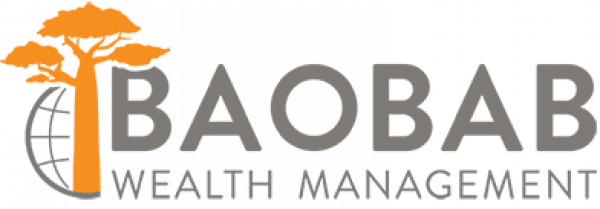One of the top anxieties Americans face today in relation to retirement is the fear of not having enough money to retire, with only 27% of pre-retirees believing they’ll be financially prepared for a retirement lasting 10 years. (1) And while saving sufficiently for retirement is a critical issue, there are other little-known and often ignored threats that could cause you to lose the nest egg you have diligently worked for. As significant as flat-out not saving enough, here are some of the less commonly discussed ways you could run into retirement trouble and how to help prevent them from derailing your retirement finances.
1. Rising Healthcare Costs
According to the Employee Benefits Research Institute, the average couple at age 65 will require anywhere from $157,000 to $392,000 in healthcare costs. (2) The majority of us don’t even have that much in our retirement accounts to live on, let alone cover medical costs. Adequate coverage is typically more expensive and harder to find without your employer’s health insurance. Even with Medicare, there are many conditions and treatments that are not covered, as well as a number of other significant out-of-pocket expenses.
When choosing your health insurance for retirement, make sure you understand all Medicare options and supplements and work with an experienced professional to help you evaluate your options. For example, many people don’t realize that basic Medicare has no cap on out-of-pocket expenses. A supplement is required to achieve a limit on costs. Comprehensive insurance is more expensive but can cap unexpected expenses. If you plan to retire before age 65, be sure to get a pre-Medicare policy in place.
2. Neglecting To Create A Withdrawal Strategy
Living off of your retirement savings is not just a “first save, then spend” process. Simply working hard to save for retirement and build up a nest egg doesn’t mean you can rest easy and withdraw as you will. Once you start tapping into your savings, you need to develop a strategy to withdraw your funds so they last the rest of your life, however long that may be.
Since you know that stocks have historically earned an average of 7-8% a year, you might assume that you can afford to withdraw 7-8% of the initial portfolio value (plus a little more for inflation each year). (3) But in reality, to protect against the uncertainty of the market, you may have to limit your withdrawals to 4% or less. (4) Remember that for years 2000-2010, the S&P only generated 1.8% per year! Since there is no simple, one-size-fits-all plan, you need to figure out what will work for you and your unique situation, taking various factors into account, such as time horizon, risk tolerance, asset allocation, and unexpected living expenses.
3. Putting All Your Eggs In One Basket
Diversification is one of the most talked about investment strategies for a reason: it helps protect your investments from market volatility. While you can’t eliminate risk from your portfolio entirely, you can cushion the blow if things go south. If you put too much of your money into one stock or even one sector of the economy, you put yourself in danger of losing your retirement savings.
Working with a professional, evaluate your portfolio’s current allocation to determine if it needs to be rebalanced or diversified. Look at the big picture of all your accounts, including employer-sponsored ones, and ensure you are diversified across the board.
4. Unexpected Early Retirement
It’s no secret that life can throw unexpected curve balls at any time and derail your plans. The same can happen to your retirement. While the average expected retirement age is 66, most people end up retiring at 62. According to the 2017 EBRI Retirement Confidence Survey, there is a considerable gap between when a person expects to retire and when they actually retire. While 38% of respondents stated that they would like to retire at age 70 or older, only 4% followed through. Most end up retiring earlier and often it’s not by choice.
No one likes to think about it, but the reality is there’s always the chance you could lose your job or fall ill. Therefore, even if you want to work longer and save more, there’s no guarantee that you’ll be able to. Early retirement can destroy even well-laid retirement plans. The loss of income during the final years of your career can spell financial disaster, and this is especially true for high earners.
To help protect against this risk, plan for the unanticipated. Make sure you have adequate disability insurance to protect your income in the event of an illness or disability. You can also work with an advisor to create scenarios and see what your savings and income would look like if you were forced to retire early.
5. Premature Loss Of A Spouse
Losing your spouse is devastating, regardless of when it happens. But losing a spouse during the final years of their career can be especially dangerous for the surviving spouse’s financial plan as well. Furthermore, retirement and long-term care costs may increase without a spouse to share costs and provide care. Depending on pension benefits selected, a spouse’s pension may not pay out to the surviving spouse in the event of his or her death. An early death may also decrease the spousal Social Security benefits the surviving spouse receives, leaving him or her with little income.
It’s critical for both spouses to be actively involved in the planning process to avoid a potentially devastating setback if this tragedy occurs. Take the time to consider benefits for the surviving spouse, such as life insurance. Wills, trusts, and beneficiary designations should be reviewed to ensure both spouses are protected financially. You should also create a pension and Social Security strategy to optimize the benefit for the surviving spouse. Examine multiple scenarios and make sure that you are taken care of no matter what happens.
Create An Action Plan
There are many unpredictable factors that go along with retirement planning, and it can easily become complicated and stressful without the proper support and know-how. However, by joining with a professional who can help you understand some of the risks and common roadblocks you can experience, you can successfully plan ahead for the unexpected and reduce the chances that your retirement plan will fail.
At Baobab Wealth Management, our goal is to help you build a predictable and reliable retirement. With our comprehensive planning process, we can help you prepare for life’s expected and unexpected circumstances. If you’re not feeling as confident as you’d like to be and think your retirement plan may need a second look, reach out to me today by calling 907-317-8454 or emailing j.miller@baobabwealth.com to schedule your free introductory meeting. Or, if you prefer the ease of simply clicking a button, click here to schedule a free introductory meeting online!
_____________
(1) https://www.marketwatch.com/story/retirement-anxiety-is-universal-as-is-the-antidote-2017-02-28
(2) https://www.ebri.org/pdf/notespdf/ebri.notes.oct13.retsvgs1.pdf
(3) http://www.simplestockinvesting.com/SP500-historical-real-total-returns.htm







